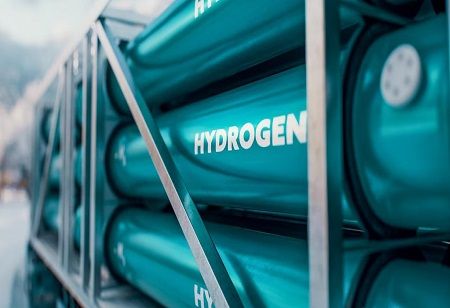
A group of researchers from South Korea and Japan has created a technology enabling hydrogen to be generated in an anionic state and to flow freely within a solid as if it were in a liquid form. This technology is anticipated to serve as a vital milestone in creating next-generation sustainable energy systems, as opposed to traditional lithium-ion batteries or solid-state batteries.
Research teams headed by Professor Kim Sang-ryun from the Gwangju Institute of Science and Technology (GIST) have managed to stabilize hydrogen in an anionic form in collaboration with the Korea Atomic Energy Research Institute and Tokyo University of Science, and have created a material structure that facilitates its rapid movement within solids, they reported on the 21st.
Although hydrogen serves as a sustainable energy source, it poses the drawback of being challenging to manage due to its tendency to react readily with nearby substances. To tackle this problem, the researchers created a framework that employs a specific ion referred to as "molecular complex ion" following the transformation of hydrogen into an anion to enhance ion mobility.
The research group organized intricate ions and hydrogen anions in a crystal framework called "perovskite." In this arrangement, the complex ions support the hydrogen anions, enabling them to travel more freely in regions where these ions have weak interactions. Consequently, the mobility of hydrogen anions rose by over 1,000 times in the absence of complex ions.
This technology shows significant promise for use in multiple energy sectors, including secondary batteries, fuel cells, and electrolyzer systems. Professor Kim Sang-ryun stated, "This research represents the world's first case of implementing hydrogen anion conduction via complex ions, and it could pave the way for a significant turning point in the development of new eco-friendly energy technologies based on hydrogen."
We use cookies to ensure you get the best experience on our website. Read more...